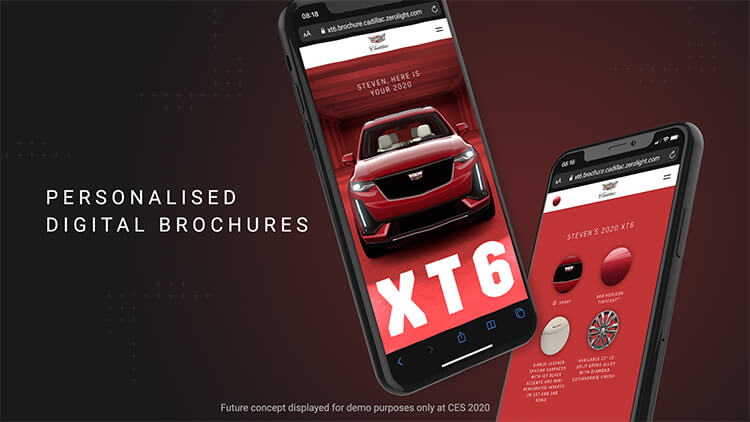The pandemic brought the entire world to a standstill. For the automotive sector that meant manufacture and sales stalling as roads ground to a halt in lockdowns around the world. Showrooms were suddenly shuttered and very few shoppers drove away in a new vehicle. In the UK, only around 4,000 new registrations were made in April 2020 – a post-war low.
This was an inflection point for the industry. Plenty of motorists did still need new vehicles, as they became the safest means of transport—but how could they research and buy one with test drives and face-to-face advice largely impossible?
Even before COVID-19 hit, automotive marketing and sales were at a crossroads. With other sectors fully embracing e-commerce and digital customer journeys, brands and dealers were beginning to play catch-up as consumers chose these new channels to locate their next car. When it comes to marketing strategies, what will be the key to sales success from now on?
The great gear shift to digital
The answer lies in digital strategy and, more specifically, artificial intelligence (AI). Most vehicle manufacturers and their networks now know that if they haven’t already created fit-for-purpose online engagement, they need it quickly to avoid being burned off by rivals.
Showrooms may be the place of chrome dreams once more, but many motorists have become used to researching and purchasing their next ride online
It’s fair to say that when brands and dealerships dabble in digital there isn’t always an overarching, cohesive strategy. Instead, many moving parts means it’s not easy to strike the right note to engage consumers or, indeed, to measure campaign effectiveness. But that is all set to change thanks to digital campaign platforms that feed off AI to engage the motorist at the right time, in the right channel, and when they’re in the mindset to consider a new vehicle.
Take the example of programmatic advertising. This aspect of online marketing is used to display relevant advertising to target consumers as they browse the web.It is an obvious option for large-scale campaigns to garner response and generate leads online but its effectiveness and efficiency is often called into question[1].
It’s also quite rigid. For example, if a brand wanted to experiment with campaign colours, layouts and messaging to optimise designs and swerve consumer fatigue, it would be a difficult task with ‘traditional’ programmatic. That’s why new, data-informed solutions for online marketing could prove a game-changer.

Capturing consumer attention using AI
Often the hardest part of creative strategy—regardless of the ingenuity of the team collaborating on it or the industry in question—is taking an objective approach to find what works. With AI-based campaign strategy, brands and their marketing suppliers can quickly establish optimal colours and layout to boost campaign stand-out and capture the audience’s attention. That’s not all AI can do. Other aspects of campaign creation and roll-out are improved, including the following:
An objective view – AI removes subjectivity—a common curse of the creative process— from the equation by using predictive visual analysis and heat maps. The solution acts as a platform for research, learning and communication for all campaign collaborators.
Built-in synergy – Standardisation is brought to the fore, leading to a system where creative work can be put through the platform, graded against key metrics and validated— a process that was solely subjective in days gone by.
Saving time and cost – The tool enables brands to predict and prevent mistakes that might well be missed until after a campaign goes live. The tool saves money but also time that would have been wasted on less successful ad testing.
Culture of experimentation – A brand new, successful approach fosters a culture of innovation, testing and learning, where humans and technology work together to understand the best approach to customer engagement in unique and exciting ways.
Success across the marketing spectrum
With the knowledge gained from AI-based campaign creation and testing, brands can expect to substantially increase click-through rate and overall ROI of online marketing campaigns. Once viewed as the great unknown by large swathes of industry, AI has been proven to contribute not just to an organisation’s bottom line but also its entire operations, engendering a spirit of experimentation with marketing, underpinned by a mentality of ‘fail-fast-learn-fast’. This approach manifests itself in many ways.

First through increased efficiency enabling the entire marketing team to create visually ready ads that can be optimised post-launch using campaign data. Then there’s time saved. AI users report becoming much more efficient since the tool leverages predictive modelling to determine which routes will fail and which would work well in the real world.
By using cutting-edge technology, automotive brands also become braver and more experimental. Adopting a fail-fast mentality helps marketers execute more tests and experiments than was previously possible.
Today, as governments seek to build on vaccination programmes to make severe mobility restrictions a thing of the past, vehicle sales are starting to rev up again. In August 2021, McKinsey found intent to purchase cars during the year to come had bounced back almost to pre-pandemic levels. That suggests lockdowns have been holding back a bit of a wave, with new car purchase intent at 94% versus pre-COVID-19 levels and up by 7% compared to September 2020[2].
Showrooms may be the place of chrome dreams once more, but many motorists have become used to researching and purchasing their next ride online. Reaching and engaging them now and in the future requires the expertise of automotive marketers but also the harnessed power of AI as this recovering industry puts the pedal to the metal once more.
[1] https://www.forbes.com/sites/augustinefou/2021/03/02/are-marketers-overspending-in-digital/?sh=2011ee8e3970
[2] https://www.mckinsey.com/business-functions/marketing-and-sales/our-insights/how-consumers-behavior-in-car-buying-and-mobility-changes-amid-covid-19
About the author: Mark Bainbridge is Co-Founder of Dragonfly AI
